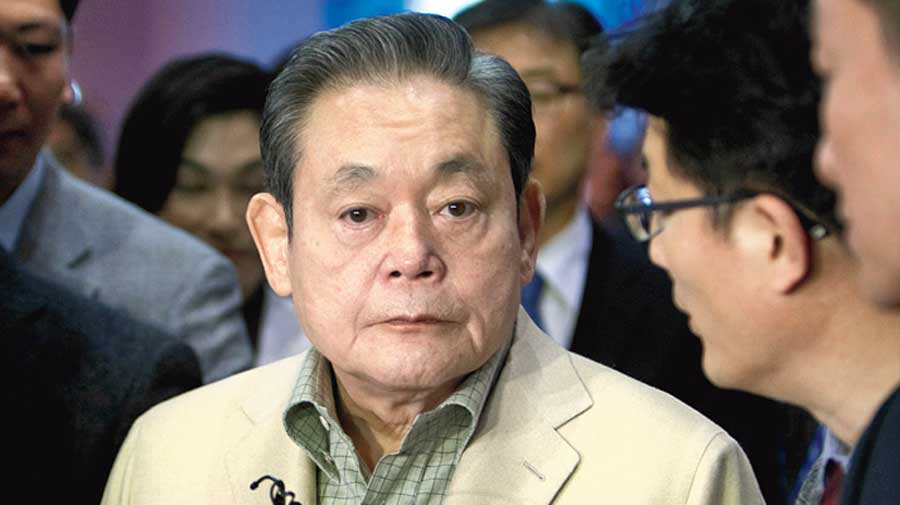Lee Kun-hee, who built Samsung into a global giant of smartphones, televisions and computer chips but was twice convicted — and, in a pattern that has become typical in South Korea, twice pardoned — for white-collar crimes committed along the way, died on Sunday in Seoul, the South Korean capital. He was 78.
Samsung announced the death but did not specify the cause.
Lee had been incapacitated since a heart attack in 2014.
When Lee took the helm at Samsung Group in 1987, after the death of his father and the conglomerate’s founder, Lee Byung-chull, many in the West knew the group’s electronics unit only as a maker of cheap televisions and unreliable microwaves sold in discount stores.
Lee Kun-hee pushed the company relentlessly up the technological ladder. By the early 1990s, Samsung had surpassed Japanese and American rivals to become a pacesetter in memory chips. It came to dominate flat-panel displays as screens lost their bulk. And it conquered the middle-to-high end of the mobile market as cellphones became powerhouse computing devices in the 2000s.
Samsung Electronics today is a cornerstone of South Korea’s economy and one of the world’s top corporate spenders on research and development. Lee — who was chairman of Samsung Group from 1987 to 1998, chairman and chief executive of Samsung Electronics from 1998 to 2008, then Samsung Electronics chairman from 2010 until his death — was South Korea’s richest man.
He and his family members used a web of ownership arrangements to exert influence over the other companies under the Samsung umbrella. Over the course of his tenure, even as professional managers came to have more responsibility at the group, Lee remained Samsung’s big thinker, the provider of grand strategic direction.
But his reign also showcased the sometimes dubious ways in which South Korea’s family business empires, known as chaebol, safeguard their influence. South Korea’s corporate dynasties are such a major source of economic vitality that some South Koreans wonder whether the chaebol are holding their country hostage.
In 1996, Lee was convicted of bribing the country’s president, then pardoned. More than a decade later, he was found guilty of tax evasion but given another reprieve, this time so he could resume lobbying to bring the Winter Olympics to the mountain town of Pyeongchang in 2018.
Soon after the Pyeongchang Games, Lee Myung-bak, South Korea’s president from 2008 to 2013 and no relation, was sentenced to 15 years in prison for accepting $5.4 million in bribes from Samsung in exchange for pardoning Lee.
New York Times News Service











